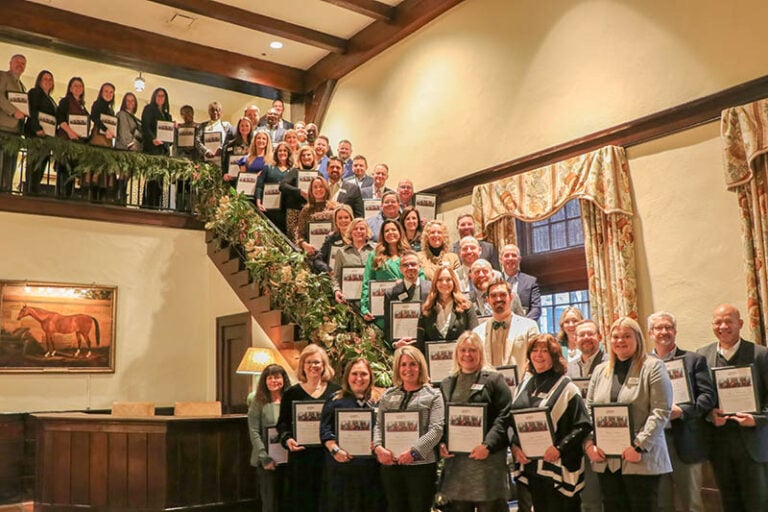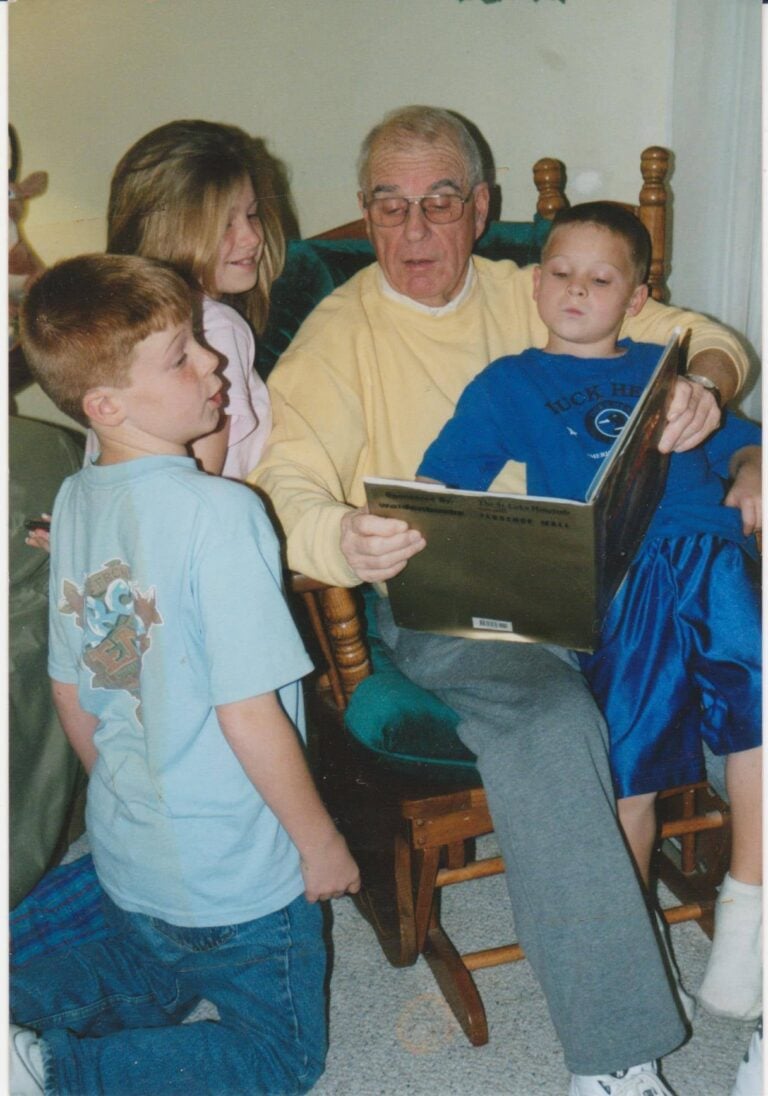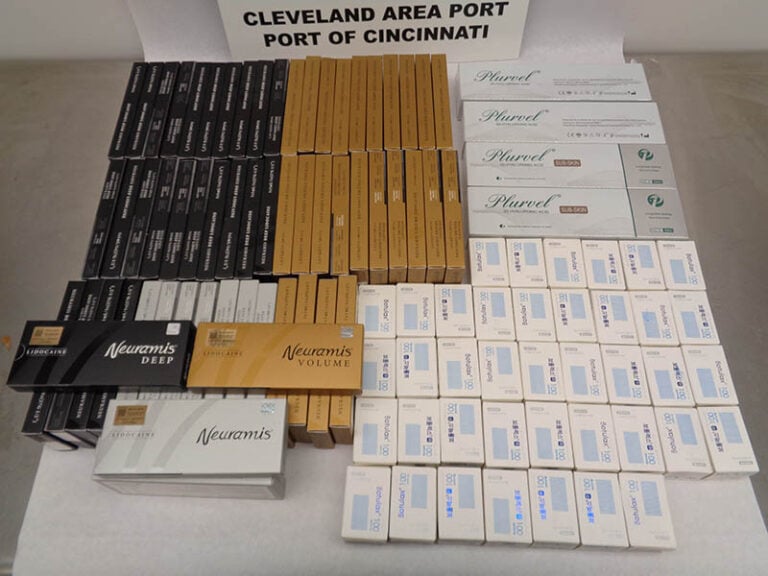By Steve Flairty
NKyTribune columnist
My early perception of Donald Pace, long-time Clark County educator who died on on Sept. 26, was that he was a crusty, no-nonsense kind of a man whom I would find intimidating if I worked as a teacher under his leadership as my principal. At the time I started my career, I was glad that I taught under a few easy-going, though effective, administrators.
My impressions of him were based on some pretty small sample sizes; I saw him at county-wide school events and occasionally out in public, and he was well-known in Winchester as the principal of Conkwright Junior High School (later to be named a “middle school”). From a distance, he appeared to be someone hard to approach and if one did, I figured it would be a nervous encounter for them.
I was so wrong.

Years later, Mr. Pace had gotten word that I was interested in coaching girls’ basketball at the middle school level. At that time as the Conkwright principal, in 1982, he didn’t need a basketball coach, but he did need an assistant football coach for his staff. I found that out the day he called me at my home in Winchester and said he’d like to meet me at Jerry’s Restaurant, on West Lexington Avenue. He wanted to discuss with me a position as a coach.
I was surprised by his call, as I hardly talked to him previously. We met at the restaurant, where he graciously bought me a piece of apple pie with vanilla ice cream, and, probably, a cup of coffee. He mentioned he had an assistant football coaching job open, and he would like me to take the job. Knowing I really wanted to coach girls’ basketball, he told me that if I took the football job, I’d “have my foot in the door for a girls’ basketball position in the future.”
Mr. Pace spoke to me that day not as his underling, but was kind of like a father who wanted to give a young guy starting out a chance to succeed in his profession. At our informal meeting, I felt no sense of intimidation, and didn’t get the sense that he’d have been upset if I didn’t take the football job.
As much for him being nice to me as any other reason, I joined the football staff for a couple years before I embarked upon an over decade-long career as a girls’ basketball coach at both Clark County middle schools in town. The football assistant’s job had a steep learning curve, but it provided the right training for me to do head coaching in the future. I attribute that preparation, at least partly, to Mr. Pace.
A few years later, I watched with intense interest to see how Trapp Elementary School, in southeastern Clark County, would arise from the ashes of a devastating fire on June 28, 1984. The school was a special place for me, as I started my teaching career there in 1975 and spent three happy years until moving on to Providence School, near Ford. I was elated when Trapp School did come back from the ashes, and a big part was because of the then new Clark County Schools’ superintendent, Mr. Pace—who had the challenge placed on his lap as his tenure began.
Under Mr. Pace’s leadership, along with the assistance of many others on the county administrative staff, teachers at the school, and helpers in the Trapp community, arrangements were made to have educational facilities at the local Boone Creek Baptist Camp until the new replacement school opened in 1986. The new building was beautiful, and it had the look of a new “old” Trapp School, and it became a very high achieving beacon of learning in Clark County.
I won’t forget another personal meeting with Mr. Pace in the late 1980s. It again showed a side of him that was far from intimidating, as I had originally imagined him. During my first marriage, I was a teacher at Central Elementary School. My youngest stepson attended another school in the district, and he was having some difficulty dealing with his medical condition of hemophilia, an inability of the blood to clot in order to stop bleeding.
It meant that frequent calls home came from the school in regard to his “bleeds,” usually taking place at recess or physical education activities. It sometimes resulted in trips to the hospital emergency room, and it was a source of nervous concern for our family. My wife and I discussed the matter and we decided to request that he be allowed to transfer to my school, where I might keep a closer eye on his health issues and work closely with the staff to help alleviate the concerns.
I’ll never forget entering Mr. Pace’s office at the central office that day. He greeted me warmly, and instead of sitting at a pompous “seat of authority,” he pulled up a chair and sat beside me. I got the strong feeling that with Mr. Pace, we were equals trying to solve an educational—and a human—problem together. He was a genuine listener and totally affirming during those moments. He agreed that it made good sense to make the move for our son, and he allowed it—not as a personal favor but simply as a common sense and humane measure.
If not a lifesaver, the move basically solved the problem and was good for all parties involved, including the original school where our son attended. That was what Mr. Pace sought to do, I’m sure.
After I retired from teaching and began writing and speaking, I occasionally would run into Mr. Pace at retired teachers’ events where I spoke. He always praised me at the gatherings and I enjoyed a light banter with him. At the Kentucky Retired Teachers Association state convention in 2015, I was a featured speaker and afterwards, sat at his luncheon table.
I shared with all around the table what he had meant to the people at Trapp School back years ago and he seemed genuinely moved by my words. I think that was because he was humbled, and he believed that actions like that were why one should enter the profession.
He cared about young people and their education, and he cared about families in general.
At the funeral this past Saturday, one person spoke of the three Fs that defined Mr. Pace: firm, friendly, and fair. I could sure vouch for those. One person mentioned that he was a great father—and a perfect grandfather.
Others mentioned his competitive nature, his respect for financial soundness, his showing up to be supportive at community events, and his love of staying involved in educational pursuits after his initial retirement. Some would say he never retired, actually, because several school systems in the state hired him as interim superintendent for short periods—mostly as a problem solver regarding financial matters. That is an obvious mark of trust and respect, and few gain that level.
In summation, Mr. Pace was a champion for education in Kentucky. He touched me, along with thousands of others, greatly.
The Donald Pace Youth Scholarship Fund was set up, according to a spokesperson, “to help deserving youth in various stages of their development…and will be used to fund anything from college scholarships to technical training (or, even) to make sure little kids can play T-ball at the YMCA.” Donations in care of the fund can be mailed to: Kentucky Bank, 24 West Lexington Avenue, Winchester, KY 40391.
Steve Flairty is a teacher, public speaker and an author of six books: a biography of former Kentucky Afield host Tim Farmer and five in the Kentucky’s Everyday Heroes series, including a kids’ version. Steve’s “Kentucky’s Everyday Heroes #4,” was released in 2015. Steve is a senior correspondent for Kentucky Monthly, a weekly NKyTribune columnist and a member of the Kentucky Humanities Council Speakers Bureau. Contact him at sflairty2001@yahoo.com or visit his Facebook page, “Kentucky in Common: Word Sketches in Tribute.” (Steve’s photo by Connie McDonald)






















